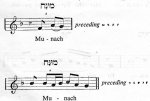J
Ok jaybird, let's do it your way. You just said, "they are judges/rulers, these judges however are sons of the Most High, not men like you and me." So who specifically are these sons of the Most High that are men like you and me?
I ask because I would like to know from you who are they judging at Psalm 82 verses 2-5?
IN GOD THE SON,
bluto
I ask because I would like to know from you who are they judging at Psalm 82 verses 2-5?
IN GOD THE SON,
bluto
Deuteronomy 32 8-9
8 When the Most High gave to the nations their inheritance,
when he divided mankind,
he fixed the borders of the peoples
according to the number of the sons of God.
9 But the Lord's portion is his people,
Jacob his allotted heritage.
the nations were divided among the sons of the Most High, to those nations they were gods, but they were not the Most High.
remember the story of Naaman, Elisha cured him of leprosy, after the cure he wanted to worship the Most High of Israel, but for some reason he didnt think he could do this back at home unless he had dirt from Israel. this only makes sense if you understand that the nations were divided among the sons of the Most High and his home had been allotted to one of these rulers by the Most High. the dirt would serve as holy ground of the Most High just the same as if he was in Israel.

